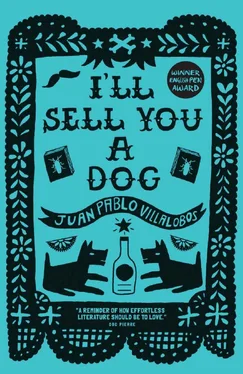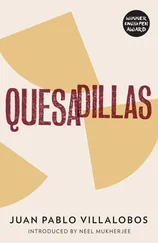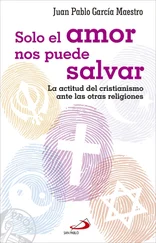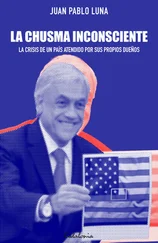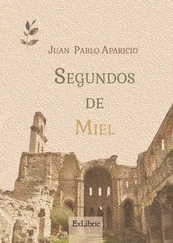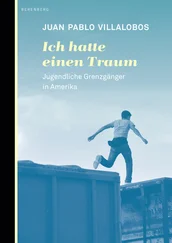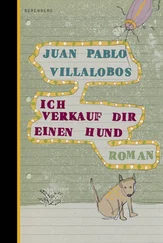‘I want you to help me get hold of a whisky they make in Tlalnepantla.’
I ended up offering him a beer and later, three or four beers later, I told him to wait and went to my room, where I took the box of fortune cookies out from under the bed.
‘Pick one,’ I ordered him.
‘Superstition is a bourgeois invention to manipula—’
‘Relax, Mao, it’s a tradition from your home town.’
He picked one. After opening it, he ate the cookie and put the little piece of paper in his trouser pocket.
‘Well?’ I asked.
‘Well what?’
‘What did it say?’
‘I’m not telling you. If we’re going to follow a tradition let’s at least do it properly.’
‘Eh?’
‘Otherwise it won’t come true.’
‘It’s not like it’s a birthday wish. What did it say on the bit of paper?’
He put his hand back in his jeans pocket and, before fishing out the paper, removed two cables and a phone charger. Finally, he read it out:
‘ Only the future gives the past a meaning. ’
‘And that was what wouldn’t have come true?’
‘I didn’t know the Chinese were revisionists.’
He put the prediction back in his pocket and, as if wanting to repay me for the beers and the cookie with a surge of indulgence, looked around into the corners of my apartment and said:
‘I’ve got a lethal solution for roaches. Want me to bring it over?’
‘Don’t bother, they’re invincible, they’re more powerful than the Yankee army.’
‘Exactly. Have you got a CD player?’
Marilín was in the same place I’d seen her last, sitting in a corner of my memory, on the edge of my bed, in my teenage fantasies, only she was still fifteen and I was an old man: women know some amazing tricks for combating the passage of time. Gingerly, I sat down next to her, trying to conceal what was going on under my fly.
‘You haven’t changed a bit,’ I told her.
‘You have.’
‘I know, I’m old.’
‘What year are you from?’
‘2013.’
‘Wow. So? Did you become an artist in the end?’
‘You know I didn’t.’
‘I do? How could I know that?’
‘We were neighbours until 1985.’
‘Really?’
‘Didn’t you know?’
‘How could I, I live in 1953.’
I gave her a stern look, thought about demanding she stop messing with me once and for all, and then I realised she was wearing her school uniform.
‘So we didn’t get married, then,’ she said, with a sigh of relief.
‘Of course we didn’t.’
‘Why not?’
‘You’re asking me?’
My outrage made her laugh out loud, satisfied that her future self had had the gall to turn me down just as she was already doing back then.
‘And what happened in ’85?’ she wanted to know. ‘Did it take you more than thirty years to lose hope?’
‘My mother and my sister died and the council used the fact that the rental contract was in Mum’s name to get me out of the house. I had to find somewhere else to live.’
‘I’m sorry, I didn’t know they’d died.’
‘Yes you did, I spoke to you the day it happened.’
‘So it was just mental masturbation.’
‘What was?’
‘Marrying me; being an artist.’
‘What’s wrong with masturbation?’
‘You’re right, I’d forgotten what a pervert you were. Just look at your trousers, they’re wet already.’
At that moment, as if reality was produced by her words, I felt a dampness spread across my groin and, when I looked down to confirm the evidence of ejaculation, a shadow rose up between us suddenly, a gigantic shadow that covered everything. I looked up and saw the Sorcerer, looming menacingly — how tall was he? Sixty feet? 250? He opened his mouth to speak, or rather to shout, and it was as if he was getting ready to spit fire.
‘WHAT DID I TELL YOU? WHAT DID I TELL YOU? JUST LOOK WHAT’S HAPPENING TO YOUR NOVEL. I HAVE SUFFERED MORE THAN CHRIST. I HAVE SUFFERED MORE THAN CHRIST. I HAVE SUFFERED…’
I woke up amid the shouting and left the warmth of my bed immediately, taking care not to fall onto the floor again. I was so shaken I even thought I heard noises in the living room. I left my bedroom and switched on the lights: there were the cockroaches, focused on their activities. I poured myself a whisky to calm myself and, as if it was an exorcism, opened my notebook and started writing furiously:
They said that María Izquierdo was afraid of him. That Juan O’Gorman liked his paintings. That Diego looked down on him from on high, scaling the arrogance of ladders and the scaffolds of his murals. That Lola Álvarez Bravo took some photographs of him that mysteriously came out blurred. That Frida didn’t remember him. Or did a good job of pretending she didn’t. That José Luis Cuevas didn’t know if he was for him or against him. They said he came from a town where families with money diligently practised inbreeding until they overcame deformity, imbecility and madness. That he had been married twice. That he was like a seminarian who had the Devil inside him. They said he’d had smallpox, syphilis, gonorrhoea, tuberculosis, measles, parvovirus. That he used to repeat over and over again: I have suffered more than Christ, I have suffered more than Christ. That he pretended to be from a family with money who had lost their wealth in the Cristero War. They said that Agustín Lazo told him that history’s quota of tormented artists had already been filled. That he never took classes at La Esmeralda after that. They said he had schizophrenia, that he’d been committed to every single one of Mexico City’s lunatic asylums, that he’d been given electroshock therapy, that he’d had a lobotomy. That he used to go to the openings of shows to scare the stuck-up old women, like someone scaring children in a park. They said his paintings looked like Giorgio de Chirico’s. That he painted the landscape of the Apocalypse and that in his still lifes, the fruits made you think of necrophilia. They said he had never travelled, that he was a hick. That he’d been born in Lagos de Moreno.
The next morning, as I left my apartment more sleep-deprived and hung-over than usual, Francesca was standing guard over the landing from her own half-open door and she yelled out:
‘At last, the protagonist appears!’
A telegram had come: a wave from the Pacific Ocean had swallowed up my father. Mum didn’t want to know anything and shut herself up in her room with Market. Along with a thousand other things, closed doors drove Market mad. He wouldn’t stop whining; it was almost as if my mother had hired him as a professional mourner. My sister and I took a bus and, sixteen hours later, we got to Manzanillo. My father was waiting for us at the bus station. For a dead man, he looked pretty good. For a living one, abysmal.
He took us out for seafood at a little palm-covered shack by the beach. The sea smelled putrid. My father apologised, as if this, too, was his fault. We started eating our prawns and ceviche, pretending he’d never been dead. Not in reality or in our minds. Meanwhile, Dad interrogated us. Were we at university, did we have jobs. Our answers disappointed him.
‘I thought you were going to be a painter,’ he said to me.
‘I did too,’ I replied. ‘I was taking classes at La Esmeralda.’
‘So what happened?’
‘Mum’s got arthritis, I had to get a job.’
‘Do you make good tacos?’
‘Really good, I’m famous all over town.’
‘I’m glad,’ he said, with the fragile resolve of the white liar.
Then he asked me if I had a girlfriend, and I told him I was going to get married in a few months. It was the time of my supposed marriage. He asked to see a picture of my fiancée. I didn’t have one on me. He asked what she was called. I told him she was called Marilín, but my sister cut in and said she was actually called Hilaria. My father tried to interrogate my sister, too, but she kept quiet, pretending to be very busy enjoying the view: she was seeing a married man on the sly. When it was time for dessert he recommended we try the mango in syrup and eventually asked us how our mother was. I enumerated her ailments for him.
Читать дальше
